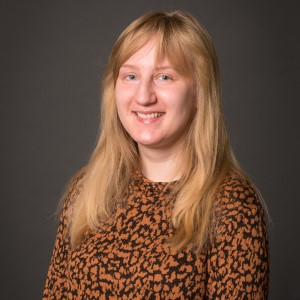Connecting teachers and academics to deliver change in education
Connecting academics and teachers to deliver change in education
Dr Kathryn van de Wiel, Research Impact Manager (Faculty of Social Sciences)
"Sharing research with schools shouldn’t be a case of turning up, giving a presentation, and disappearing back into academia. Our project is bringing researchers and teachers together in exciting collaborations, enabling researchers to share their work with the sector, helping to fuel innovation in the curriculum."

Before I joined the University of Warwick, I worked for a charity called The Brilliant Club.
Its work focuses on improving access to higher education and increasing the admission of less advantaged students who go to leading universities – a mission I’m just as passionate about now I’m a Research Impact Manager in the Faculty of Arts at Warwick.
I support researchers to deliver impact, because ultimately, isn’t that what research should be all about: finding out how to make a positive change or deliver benefit to society?
There’s already some fantastic public engagement work taking place across my faculty and beyond, but I thought there was an opportunity to build upon this and take it a step further. I wanted to work with schools and convert this work into things they can not only access, but take advantage of.
"Schools represent the beginning for all of us, no matter where our educational journeys lead, so helping them to push boundaries in terms of ambition and innovation is a worthwhile thing for academics and professionals in academia to do."
That’s why, through our School Impact Network supported by the Research Culture Fund, we brought researchers and teachers together.
In face-to-face meetings, we could better understand what kinds of things schools want and need, the challenges they face and how we can provide usable content – which is far more productive than just sharing research without this critical context.
From this insight, we were able to devise a schedule of workshops under different themes.
For example, diversifying the curriculum is a huge issue at the moment - as is decolonising it – so researchers worked directly with teachers to find out what format their research might need to take in order to be most relevant and practical in the classroom.

It’s been a positive, rewarding experience, but that isn’t to say there haven’t been challenges along the way.
Chief among them has been the strike action of both university staff and teachers, which has understandably required pauses in the project. And even without the industrial action, resource is a big hurdle.
There has been plenty of enthusiasm for the project, which has had some great impacts already.
One of the schools we’ve collaborated with in Rugby is now having an off-timetable day where they’ll look specifically at ways to decolonise the curriculum to better reflect the interests and demographics of their pupils.
Meanwhile, two researchers in English and Comparative Literature Studies are working with another school in Coventry to look at how the works of Dickens can provide a vehicle to explore class and the expression of struggle. The hope is that students can reflect on their own circumstances and aspirations by engaging more personally with literature and thinking about the urban history of their city.
Fostering this kind of partnership working is exciting; one of my ambitions is that more researchers will engage with schools, sharing research with them systematically rather than just in one-off lectures.
Being at Warwick also helps in developing and delivering a network like this; it’s such an outward-looking place, and you can definitely feel an exciting desire to stay at the forefront of innovation and best practice.
The plan is very much to continue our efforts with the School Impact Network, so we’ve applied for further Research Culture funding.
Looking forward, my hope is that even more researchers will consider sharing research with schools in a more strategic way; it isn’t about ‘dumbing down’, but instead a really innovative opportunity to do something truly meaningful.
